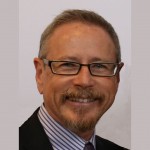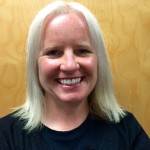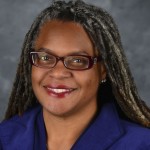Radical Archives – Question 5
By
Aaron Devor, Meredith R. Evans, Emily Gore, Mark A. Matienzo, Joy R. Novak, Lara Wilson
November 2015
5What radical idea or change would you like archival institutions, archivists and librarians, and/or users of archives to adopt?
Barriers to access are a significant concern if radical archives are to maintain relationships with radical communities. There are some aspect of access that pose particular barriers to trans* people wishing to access the Transgender Archives. Many archival and rare-book departments within academic institutions do not have the same hours as the circulating collection and, like the Transgender Archives, are only open 8:30 to 4:30 from Monday to Friday. For many people, these hours are a barrier. We hold these materials in trust for trans* communities and we see our role as that of respectful custodians. As such, we see it as our responsibility to ensure maximum access is compatible with realistic preservation efforts.
Read this ResponseI would like archival institutions and archivists to take more risks and work more closely with underrepresented communities to ensure their perspective is recorded regardless of format. The documentation of different cultures and traditions produces an accurate depiction of society and will accurately inform the historical record. Ignoring or shying away from what is uncomfortable is a disservice to future generations and perpetuates only the views of majority institutions, elites, and/or leaders.
Read this ResponseRadical sharing: embracing the ideas that we are cultural stewards of the materials in our archives and libraries, and that our main role is to share that material with all who are interested. We are not in the business of gatekeeping. We are in the business of radical sharing. I am not calling on people to violate copyright, but I do think we need to push the envelope of risk in our organizations. Often, archivists and librarians could make a lot more of our material available online than we do, but because of the conservative risk profiles of our institutions, we often do not. I am calling for us to always think about reuse when we put material online: How might what we put up be reused by others?
Read this ResponseAs an archivist, I have always prioritized access and engagement. An archive’s overarching responsibility in society is to preserve historical records, but it is just as important to ensure materials are sufficiently accessible. Similarly, it is important to stay engaged with the local community as well as any communities whose histories we are preserving, so people are aware of these accessible materials and how they may be relevant to their research as well as everyday lives. Radical archives can be models for more traditional archival institutions for the exploration of potential engagement opportunities. A repository will always obviously sit within the restraints of its institutional guidelines and mission; however, I think that more awareness of the practices of radical archives may help archivists and librarians identify ways in which they can utilize more “radical” practices in their own work, and specifically develop programs that may promote engagement. For example, a more traditional archive might expand its collecting mission and its understanding of what records or documents are appropriate for the institution, which may make the collection more representational and diverse, and ultimately promote new outreach opportunities.
Read this Response




